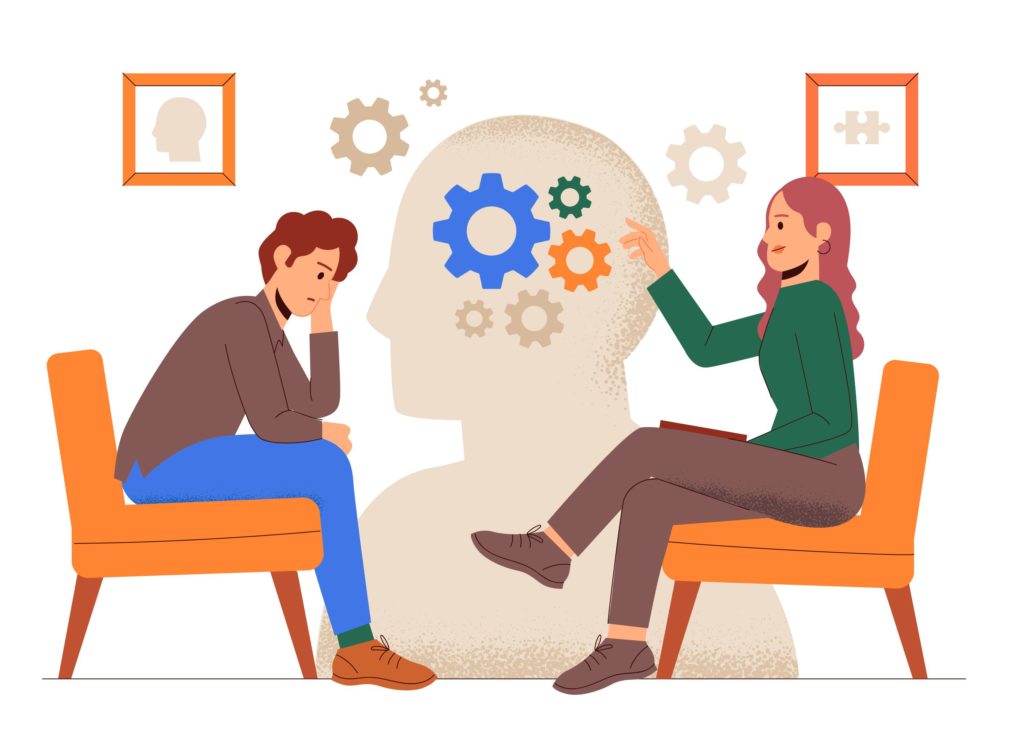Exploring the Benefits of EMDR Therapy for Anxiety and Depression
This article has been researched and written by Nayla Daou. AI has not been used in producing this article.
Anxiety and depression are two of the most common mental health disorders worldwide, affecting millions of people every year. While traditional talk therapy and medication can be effective treatments, some people may prefer more targeted and efficient approaches. Eye Movement Desensitization and Reprocessing (EMDR) therapy is an alternative treatment that has gained popularity in recent years. In this article, we will delve into the benefits of EMDR therapy for anxiety and depression, exploring how it can help people manage their symptoms and improve their mental health.
What is EMDR Therapy?
EMDR therapy was developed accidentally in the late 1980s by psychologist Francine when she discovered that eye movements seemed to reduce the intensity of her own disturbing thoughts and emotions. She later developed EMDR as a therapeutic technique for treating trauma and post-traumatic stress disorder (PTSD). Since then, it has become an established treatment for various mental health conditions and is used by practitioners worldwide.
EMDR therapy involves a series of guided eye movements or other forms of bilateral stimulation while the patient focuses on a traumatic memory or thought. The idea is that these movements help to reprocess the memory in a way that reduces its emotional intensity, making it easier for the patient to manage and cope with.

Benefits of EMDR for Anxiety
Anxiety is a common mental health disorder characterized by excessive worry, fear, or apprehension. People with anxiety often experience physical symptoms such as sweating, trembling, or heart palpitations. EMDR therapy can be an effective treatment to help alleviate anxiety and stressors.
1. Reducing the emotional intensity of traumatic memories
Trauma and anxiety often go hand in hand. EMDR therapy can help individuals with anxiety by reducing the emotional intensity of traumatic memories, making it easier for them to manage their symptoms.
2. Enhancing coping mechanisms
EMDR therapy can also help to enhance a person’s coping mechanisms. By reducing the emotional intensity of traumatic memories, the patient is better equipped to manage their anxiety symptoms when they occur.
3. Addressing underlying issues
EMDR therapy can help to address the underlying issues that contribute to a person’s anxiety. By processing memories and thoughts, individuals can gain a deeper understanding of their anxiety triggers and develop healthier coping mechanisms.
4. Offering a non-invasive treatment option
EMDR therapy is a non-invasive treatment that does not involve medication, making it a preferred option for individuals who prefer natural therapies or who cannot take medications due to various reasons.
5. Providing long-lasting relief
EMDR therapy can provide long-lasting relief from anxiety symptoms by addressing the underlying causes of the condition rather than just treating the symptoms. This can result in a reduction in the frequency and intensity of anxiety attacks, improving the individual’s quality of life.

Benefits of EMDR Therapy for Depression
Depression is a common mental health disorder characterized by feelings of sadness, hopelessness, and a lack of interest in activities that were once enjoyable. EMDR therapy can be an effective treatment for depression.
1. Addresses Negative Beliefs
Negative beliefs about oneself can contribute to depression. EMDR therapy can help to address these negative beliefs by reprocessing traumatic memories and thoughts that may have contributed to them.
2. Reduces the Emotional Intensity of Traumatic Memories
Just like with anxiety, EMDR therapy can also reduce the emotional intensity of traumatic memories that contribute to depression. By reprocessing these memories, individuals can learn to manage their symptoms better and experience an improvement in their mood.
3. Improves Self-Esteem
EMDR therapy can also improve a person’s self-esteem, which can be a critical component in treating depression. By addressing negative beliefs and reprocessing traumatic memories, individuals can develop a more positive self-image and a greater sense of self-worth.
EMDR Therapy with Clearminds
If you’re struggling with anxiety or depression, EMDR therapy may be the powerful tool you need to improve your mental health. By addressing underlying issues and reprocessing traumatic memories, you can learn to manage your symptoms and find relief. While EMDR therapy may not be the best fit for everyone, it’s crucial to explore alternative options for those who don’t respond well to traditional talk therapy or medication. Don’t suffer in silence, the professionals at Clearminds are here to help you or your loved ones discover the best course of treatment for your unique needs.
Contact a member of our team today to learn more about how EMDR therapy can help you.
How Psychoeducational Assessments Help Shape Better Learning Plans in School
No two children are the same. Every child brings a unique mix of strengths, challenges, and ways of …
Can Relationship Counseling Work for Toxic Relationships?
Relationships can be complicated, emotional, and at times, painful. While every couple experiences ups and downs, some relationships …
10 Signs You May Have Anxiety
Anxiety is a normal and natural human response to stress, danger, or uncertainty. However, when anxiety becomes excessive, it can …
Child Sleepwalking and Talking: What You Need to Know
Childhood is a time of rapid development, filled with new experiences—and sometimes, surprising nighttime behaviors.
Questions a Child Psychologist Might Ask
When preparing for your child’s first appointment with a psychologist, it’s natural to feel curious—or even a little anxious—about what …
55 Love Questions for Couples to Deepen Your Relationship
In any relationship, communication is key. Whether you’re just starting out or have been together for years, asking meaningful
Stress vs. Anxiety vs. Burnout: How to Recognize the Difference
In today’s fast-paced world, understanding the differences between stress, anxiety, and burnout is crucial for …
Relocation Depression: Definition and Ways to Cope
Relocation depression, also known as moving depression, is a form of situational depression that arises from the stress …
How to Help Your Child with Anxiety Through Divorce
Divorce is a significant change that affects every member of a family. For children, the uncertainty and adjustments …
Depression vs Sadness: Understanding the Difference
While often used interchangeably, the terms “sadness” and “depression” represent distinct emotional states, each with …











